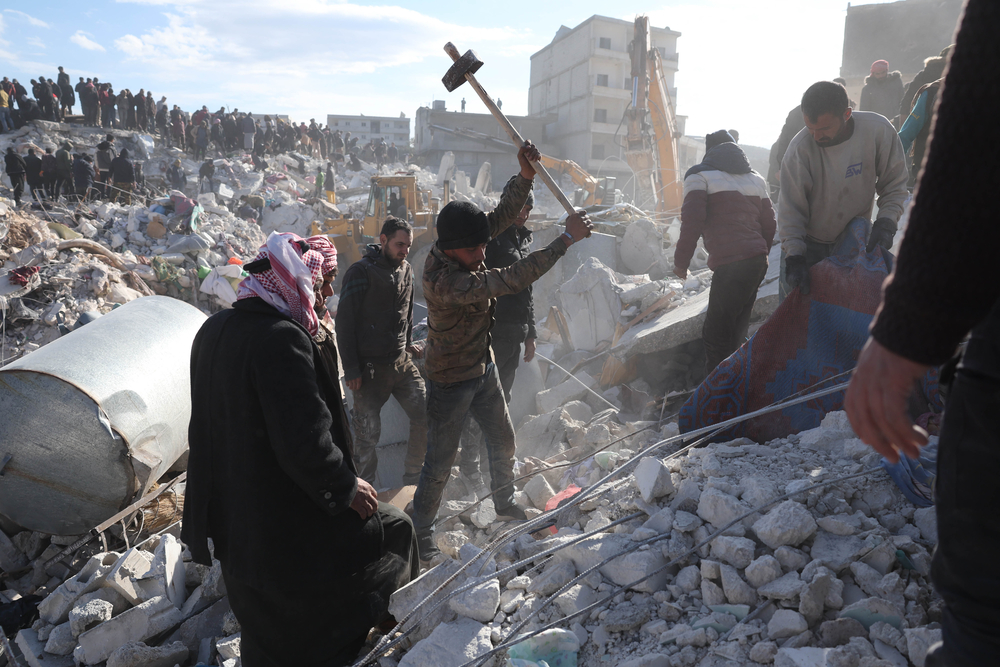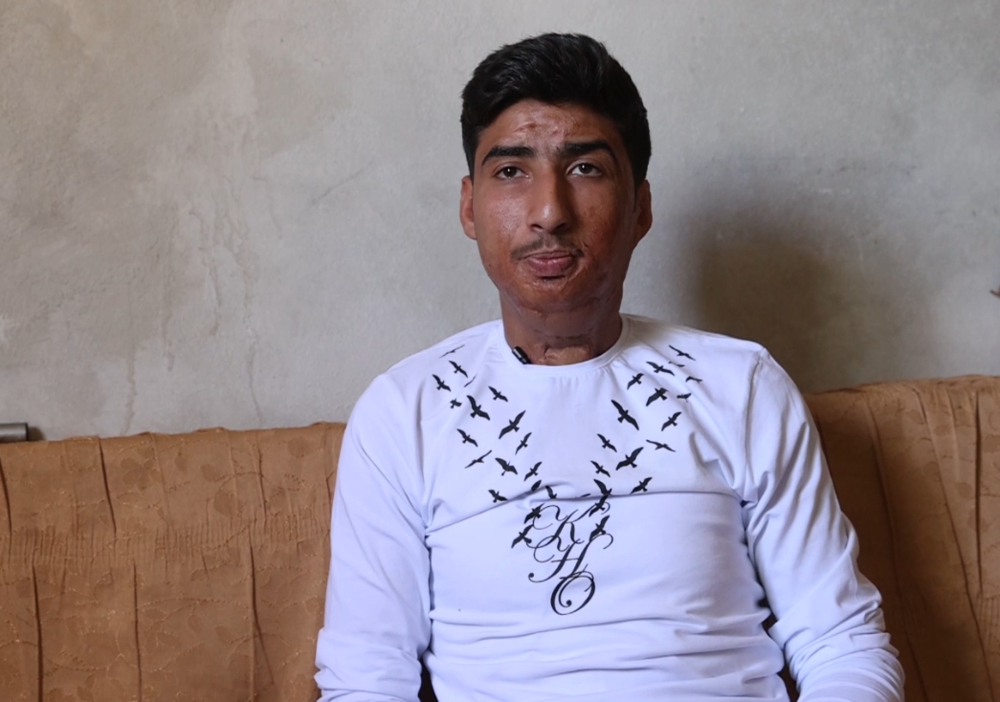Türkiye-Syria earthquake: through the eyes of the displaced person, our patient and staff members

Walid *, 68-year-old displaced person in Termanin
“My two sons who fled from Jindires after the earthquake with their families came to my house. My daughter-in-law delivered the moment she arrived. I am a cancer patient, and I used to receive treatment in Türkiye. My house with two rooms is now hosting three families. We do not have enough blankets, heaters and other essential items to cover the needs of the three families. I feel helpless, not able to provide any support to my family.”
Mohammed, MSF driver
“A mother was taken out dead, but her three children were saved. The rescuers first took out one child from under the rubble and directly handed him/her to the ambulance. When the ambulance was about to leave, they took out another one, so they stopped the ambulance and put the second child inside. The same thing happened again with the third child. The people were cheering with happiness, they said they couldn’t take out the mother and the kids for two days, and now at least the children are alive.”
Abdulbari, 19-year-old MSF patient
"There is a shortage of gasoline. Sometimes you can find diesel, but it's so expensive that everyone uses wood for heating, and that's another problem because people are cutting down all the trees. Recently, I saw people chopping down the wood of an olive tree for heating. When one come to cut down such old trees, it means that they have nothing left.”

Sherwan, MSF Operations Support Officer in Amsterdam
“One of the main problems is the lack of access to Northwest Syria. The only access is through one humanitarian corridor. For years it has been difficult to deliver support and supplies to this region and unfortunately it has not been any easier in the last few days. No aid could reach the area in the first 48 hours after the earthquake—the vital timeframe for survivors. We call ourselves Doctors Without Borders, but unfortunately there are many borders, and we are trying to overcome them and find different ways to deliver this aid to these people in need.”
Ahmed, MSF project coordinator for Idlib, Syria
“After the earthquakes, this (Bab Al-Hawa) crossing point was closed for three days and only reopened yesterday, with very little traffic so far. Humanitarian organisations working inside Northwest Syria have dipped into their emergency stocks that were on site. There is no time to waste in reaching the people of this region, as the delivery of supplies is crucial. Two million people are living in displacement camps, often in tents exposed to the wind. Just a week before the earthquake, a snowstorm had hit the area. Living conditions have significantly deteriorated…temperatures are reaching negative figures at night.”
*Names changed to protect identity.





Leave a Comment